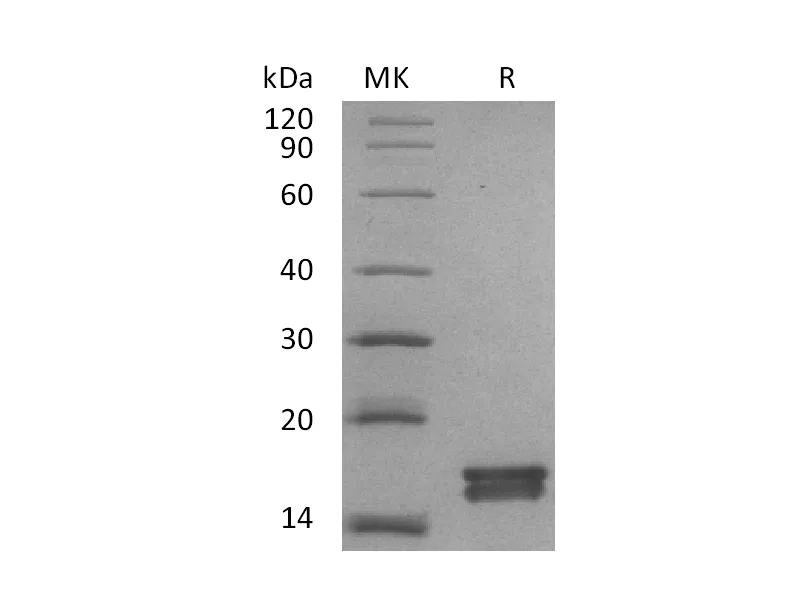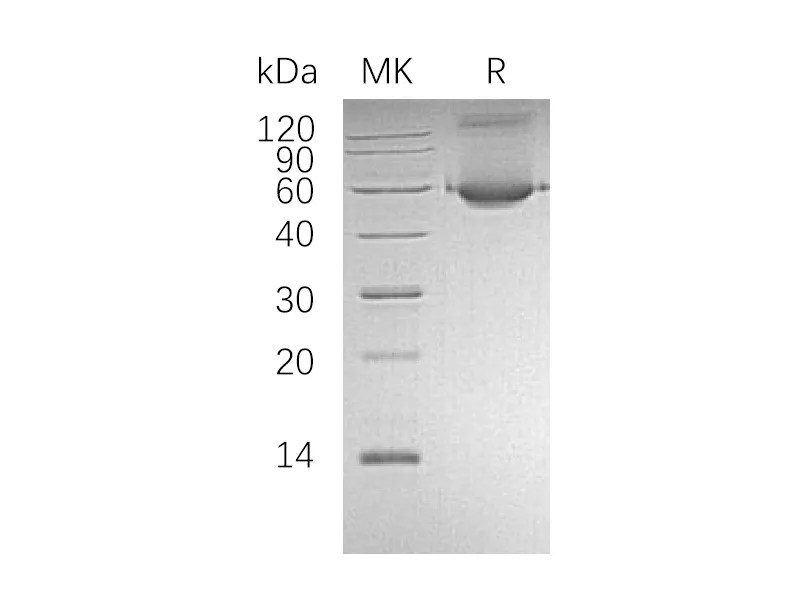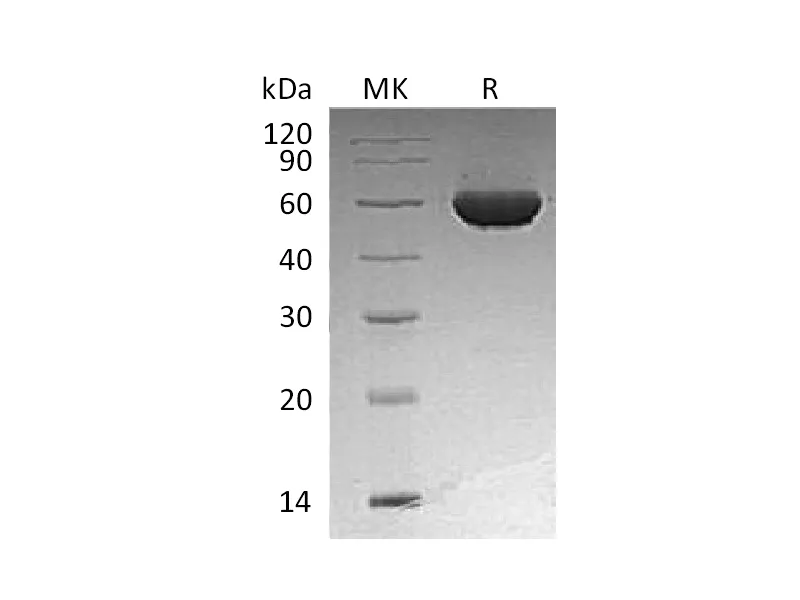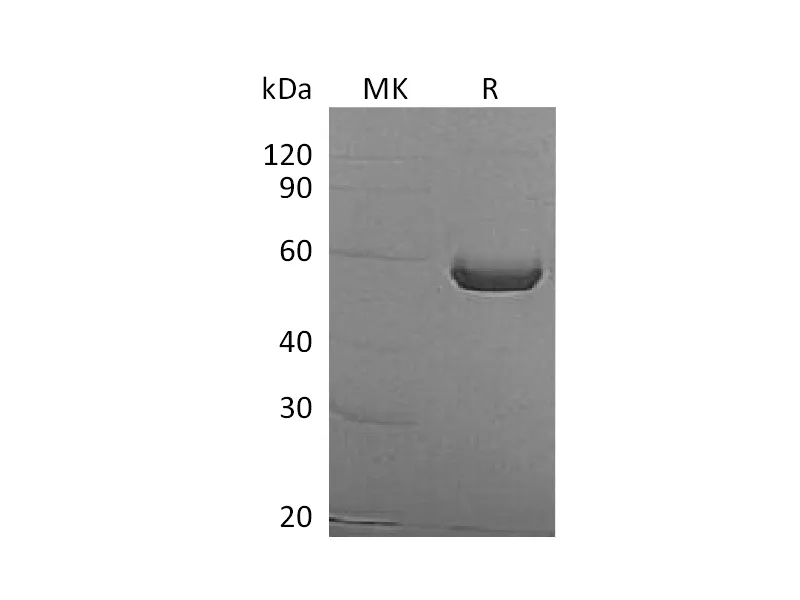Alternative Names
Small ubiquitin-related modifier 3; SUMO-3; SMT3 homolog 1; SUMO-2; Ubiquitin-like protein SMT3A; Smt3A
Background
Small ubiquitin-like modifier (SUMO), also known as SUMO homologue and SMT3, is a member of the superfamily of ubiquitin-like polypeptides that become covalently attached to various intracellular target proteins as a way to alter their function, location, and/or half-life. Small ubiquitin-like modifiers include SUMO1, SUMO2, SUMO3, and SUMO4. Except for SUMO4, all other SUMOs are ubiquitously expressed, including in the brain. In human, SUMO2 and SUMO3 are two highly homologous proteins, collectively called SUMO2/3. Several studies suggest that SUMO3 are associated with pathogenesis in several neurological diseases, including Alzheimers disease, Parkinsons disease, and cerebral ischemia/stroke.
Note
For Research Use Only , Not for Diagnostic Use.




